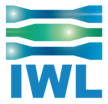
Expert Protocol Testing and Network Emulation
Who we are
IWL is a California company creating computer networking products. DevOps teams use IWL network emulators and protocol testers to test and deploy apps and devices in the cloud, the internet, and mobile networks. Our network emulator products mimic the types of conditions an app or device would encounter on a real-world network. Our protocol testing products test apps and devices for conformance and robustness to industry standards.
Why do business with IWL
No charge consulting from qualified staff. More than 90% of our staff have a master's degree and about 20 years of hands-on networking experience. We provide no-charge consulting to help you implement our products in the most cost-effective manner.
Our staff members have chaired IETF working groups (and are cited as contributors in several others). Our active participation in the IETF meetings and the creation of RFCs and Internet-Drafts ensures our deep understanding of networking protocols and provides you with the competence required to advise you on protocol implementation and test methodology.
DARPA selected IWL's network emulators to create the degraded network conditions for the DARPA Robotics Challenge and DARPA Robotics Finals. Our deep technical expertise helped shape and define the degraded network performance for this important leading edge effort.
The developers of freely available network emulators use IWL's commercial network emulators, even though our network emulators do not use the freely available code. Why? Our network emulators are calibrated and meet the calibration requirements of the medical device industry.
Our staff participates in NANOG (North American Network Operators Group) and are featured, keynote speakers at NANOG events.
Our advisory boards for protocol testing include the experts in the subject protocol so that we can assure that our protocol tests are accurate and reflect the true meaning of the RFCs.
Our company is WBENC certified: current certification (PDF)
IWL proudly sponsors the Internet Protocol Journal
Management Team
Chris Wellens
Chairman, IWL Board of Directors
Ms. Wellens founded IWL in 1993 as a spinoff from the Interop Company, where she was the Director of Technology Marketing. In this capacity she provided leadership for the 5,000 node "InteropNet" as well as technology showcases. Prior to Interop Ms. Wellens held management positions in marketing and engineering for Sun Microsystems (now Oracle), with specific responsibilities for networking and operating systems and the integration of third-party products to the Sun environment.
Chris was an instructor in Software Product Marketing at UC Berkeley Extension and Introduction to Unix and C Programming at UCLA Extension. Chris has served on the Board of Shakespeare Santa Cruz and YumaWorks. She earned a B.A. from Wellesley College and an M.S. from the University of Southern California.
Karl Auerbach
President and CEO
Mr. Auerbach founded both Epilogue Technology Corporation (SNMP engines) and Empirical Tools and Technologies, Inc. (network diagnostic tools). Prior to IWL, Karl was at Precept Software (acquired by Cisco) where he architected and implemented IP/TV, a pioneering product for the distribution of entertainment grade video over the internet. Karl was a senior researcher in the Advanced Internet Architecture group at Cisco Systems; is the co-founder of the Boston Working Group; and has served on the Board of Directors of the Open Voting Consortium.
Karl was named a Fellow of Law and Technology at CalTech and the Loyola of Los Angeles Law School and is a member of the Intellectual Property Section of the California State Bar. He received the 2002 Norbert Wiener Award from the Computer Professionals for Social Responsibility (CPSR). Karl earned a B.S. from UC Berkeley and a J.D. cum laude from Loyola Law School.
Background & History
IWL was co-founded by Marshall Rose and Chris Wellens who met while serving on the Interop Program Committee. Chris was the Director of Technology for Interop and Marshall was a Working Group Chair in the IETF for the Simple Network Management Protocol (SNMP).
It was 1992 and both Chris and Marshall were concerned with the poor quality of SNMP implementations. Marshall agreed to create a set of tests if Chris would organize a group of developers into an interoperability test summit. Chris did so by establishing InterWorking Labs in 1993 and producing the first SNMP interoperability test summit in January of 1994. While the legal entity remains, the Company started doing business as "IWL", to match its domain name and simplify its communication.
A shocking number of impementations failed the majority of the tests and there were only 50 tests! From those beginnings, SilverCreek, the authoritative SNMP Test Suite (or SNMP tester) was created. Today, IWL offers tests for a number of protocols -- SNMP, TCP, TPv4, IPv6, UDP, ICMP, SIP, TLS, and more, covering protocol conformance, compliance, stress testing, robustness/vulnerability testing, negative, inopportune, and interoperability testing. Beyond protocol testing. IWL provides products to emulate adverse network conditions in the lab, including bandwidth limited environments, misconfigured routers, and a wide variety of anomalies.
Certifications
IWL is certified by the Women's Business Enterprise National Council. The certification occurs annually and requires a detailed audit and site visit of all the financial records, board meeting minutes, and key contracts undertaken by the enterprise. For companies who can benefit from doing business with a WBENC certified company: IWL WBENC Certification (pdf)
The HOTI Project
IWL is the producer for the HOTI Project (pronounced 'hottie'). HOTI, or the History of the Internet, is a film project that tells the story of how the Internet evolved. Instead of a feature length, commercial film, HOTI is a collection of five-minute videos with each video capturing one important idea. Most five-minute segments contain an interview with a key individual who made a technical contribution to the evolution of the Internet.
The goal of the HOTI project is to help people understand that today's Internet evolved from the combined contributions of about 200 people. It was not the work of just one person. In addition, significant funding for the early Internet originated from the Department of Defense; the Internet was not developed by an entrepreneur with venture capital funding.
The HOTI project is expected to take ten years to produce with a completion date in 2025.





